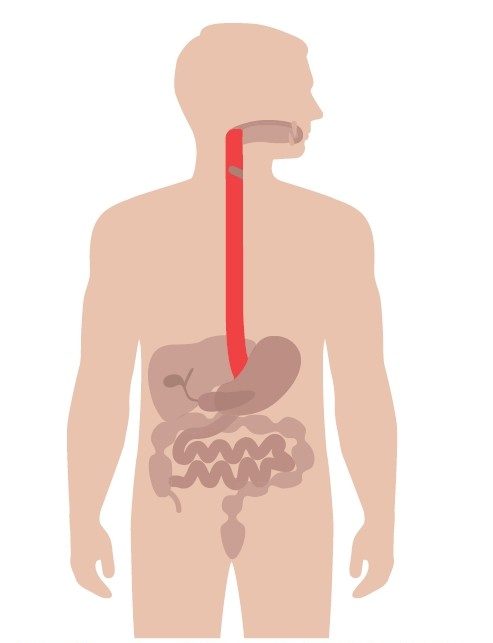Latest News
Fight the Flu – Flu Vaccines Available
Speare Expands Breast Cancer Education During Awareness Month
While many cancer deaths are decreasing across our country, there is one growing at an alarming rate – esophageal cancer. And this is of tremendous concern to Dr. Joseph Casey, of Plymouth General Surgery.
“Cancer of the esophagus is one of the fastest growing cancer diagnoses in the United States, with nearly 18,000 new cases diagnosed annually,” says Dr. Casey. “It often begins as gastroesophageal reflux disease, also known as GERD, a chronic digestive disease that occurs when stomach acid flows back up into the food pipe, irritating the lining of the esophagus.”

“Smoking can lead to esophageal cancer as well as frequent alcohol consumption because they cause injury to the lining of the esophagus,” says
Dr. Casey. “There are a number of risk factors that can cause acid reflux and the chain of health issues it can set off.”
- Too much caffeine and chocolate – this can relax the valve that connects the esophagus to the stomach, allowing more material to go back up into the esophagus.
- Spicy foods, tomato products, smoked and cured meats, and citrus fruits – all have been linked to acid reflux.
- Obesity could also be a factor – all that extra pressure on the abdomen forces fluid back up into the chest, which leads to more reflux.
Treatment of reflux, identification of Barrett’s esophagus, and early detection of esophageal cancer is key. If you are experiencing heartburn
several times a week or over a long period of time, pain or difficulty when swallowing, hoarseness, excessive coughing, chest pain or burning, or
unintentional weight loss, you should talk to your doctor about treatment options for reflux and screening tests for Barrett’s esophagus and esophageal cancer.
“Using the cutting-edge technology and testing available at Speare, we can successfully treat reflux and help to prevent the development of esophageal cancer,” says Dr. Casey.
The physicians at Plymouth General Surgery specialize in the treatment of heartburn, reflux, and Barrett’s esophagus. We offer personalized counseling and treatment options, including the following:
- Dietary & medication management
- Endoscopy to screen for Barrett’s tissue & esophageal cancer
- Endoscopic treatment to remove Barrett’s tissue
- Minimally invasive surgical procedures for the control of reflux.
Staying ahead of the game with reflux is what can save you from a whole lot of discomfort—and potentially save your life.
To learn more and understand your risk for developing esophageal cancer, call Plymouth General Surgery at 603-536-5670 to make an appointment.

